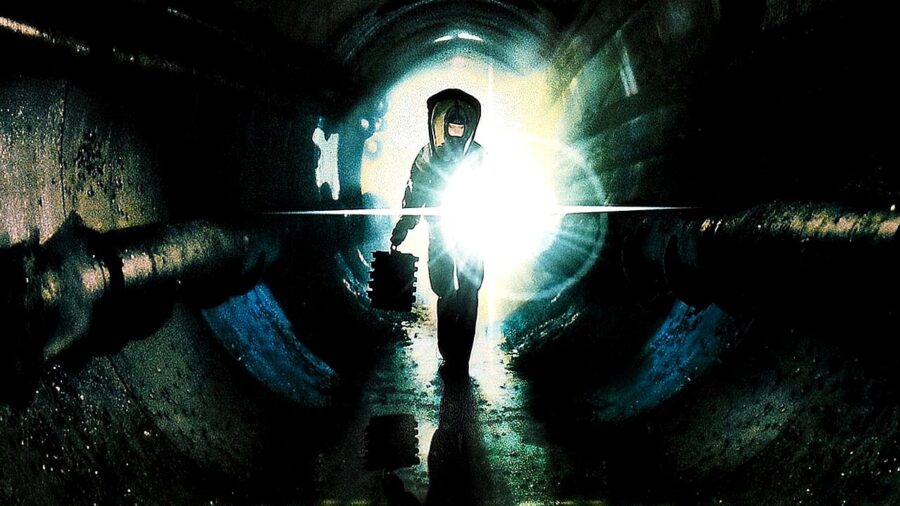By Drew Dietsch
| Published
It’s no hyperbole to say my most anticipated movie of the year is Guillermo del Toro’s Frankenstein. Thanks to his long and fruitful relationship with the brass at Netflix, the horror maestro is finally getting to produce one of his greatest passion projects: an adaptation of Mary Shelley’s must-read novel that promises to be both a lovingly faithful interpretation and an unfiltered, unique vision from del Toro’s own influences and inspirations.
If you ask me, del Toro has never made a bad movie. We’ll dig into the nitty-gritty of that in a bit, but I make that (not) bold statement to bolster my next proclamation: there is no way Frankenstein can possibly be anything but a creative success for so many reasons that you’re (hopefully) going to read about right now.
Guillermo del Toro Has Never Made A Bad Movie

Okay, let me get that one out of the way first. Regardless of your personal take on his movies, del Toro’s filmography is widely embraced in film critic circles and with genre fans. Though everyone has their preferences, you’ll be hard-pressed to find respectable critics that don’t acknowledge his body of feature directorial work to be exceptional.
However, there is one notable exception in that filmography: Mimic, the 1997 bug-monster horror flick that was del Toro’s first American feature film. Mimic was produced by Dimension Films, the genre arm of Miramax. Yup, that ol’ sentient cyst Harvey Weinstein and his vole of a brother, Bob, ended up giving del Toro a hard time with creative control over the movie. This led to del Toro disowning the theatrical cut of Mimic and it was always the one film on his record that felt off.
Thankfully, del Toro was able to return to the film later and create a director’s cut that turned the movie int something much more in sync with his voice and original intention. And that director’s cut was also embraced by the film community as a significant upgrade.
So, why do I talk about this in regards to Frankenstein and its eventual success? Well, it’s partially because I’m not some soulless AI regurgitation that is just going to vomit non-context at you. It’s important to understand that del Toro’s track record with film aficionados is nigh-spotless thanks to Mimic‘s reclamation. The rest of his filmography is thoroughly celebrated. Sorry if you are a sourpuss who didn’t like Pacific Rim or you’re just an outright idiot who thought he made Pinocchio “woke.” Guillermo del Toro’s directing efforts are fully embraced by the entire spectrum of cinema dorks from the Criterion Collection to Funko Pop! collectors.
And he’s getting to make his dream Frankenstein movie? It’s nothing but net when it comes to him making a movie that will be worth watching. But it’s not just Frankenstein‘s perceived quality that feels assured at this point.
Everyone Is Going To Watch Frankenstein

Thanks to being a Netflix prestige production, you can bet your sweet bippy that the streaming behemoth will be shoving Frankenstein down the throat of subscribers. Its marketing presence is going to dominate the Netflix interface. There’s no chance that Netflix will miss at telling everyone with eyes and ears, “You gotta see this movie and the only way is by subscribing to our service!”
Now, I won’t go off on a tangent about a movie like Frankenstein deserving a traditional wide theatrical exhibition (it does), but I will say that there is probably a decent chance that more people will be willing to check out Frankenstein on Netflix as opposed to giving it a shot at the movie theater. Plus, who knows what competition Frankenstein would face at the multiplex? Again, I want Frankenstein to get treated like Sinners when it comes to theatrical distribution, but I’m also aware that Netflix is not going to do that.
As that stands, there’s a real chance of Frankenstein being Netflix’s biggest push towards viewers in the winter. The film is currently slated to release in November and could try and take advantage of the holiday schedule. With folks having more recreational time, Frankenstein can be poised as the thing everyone is watching and talking about around the dinner table.
Netflix is still a major driver of cinematic entertainment and pop culture, and if they want Frankenstein to feel like a cultural event, they will do everything in their power (read: mega-billions) to make it so.
A Dream Come True

But what really matters when it comes to labeling Guillermo del Toro’s Frankenstein infallible is the simple fact that it exists. This is something that has been brewing inside of del Toro for ages and we’re going to be lucky enough to see it realized.
Movies don’t often actually get made. In fact, del Toro himself has said that the natural state of a movie is to not exist. So, when a passion project like Frankenstein actually comes together and gets to be out there in the world? That is a impenetrable triumph all its own.
So, even if Frankenstein is the worst del Toro movie, I still know it will be a fascinating, engrossing, thought-provoking, and worthwhile failure because it’s an artist getting to Do It, getting to Go There, getting to burn a corporation’s money in pursuit of telling a story through the dream of cinema.
That sounds like success to me.

















